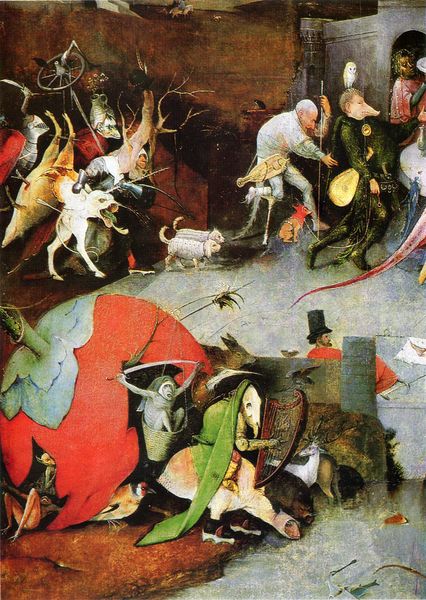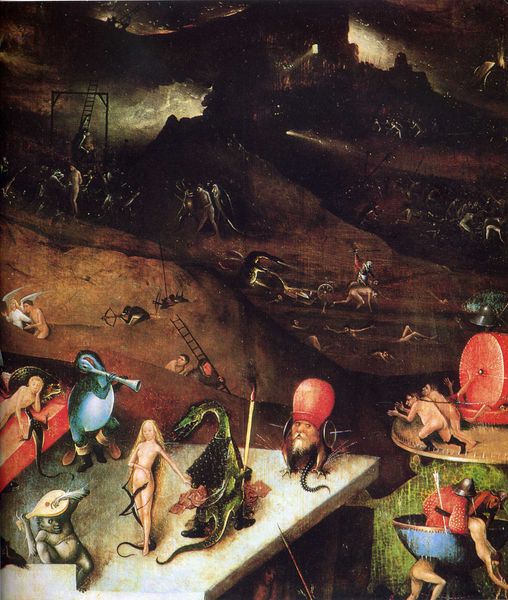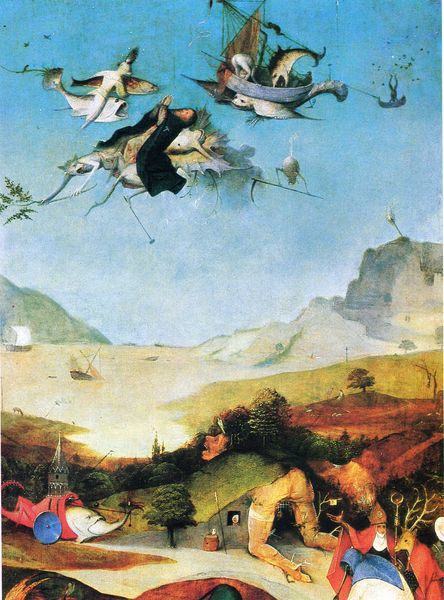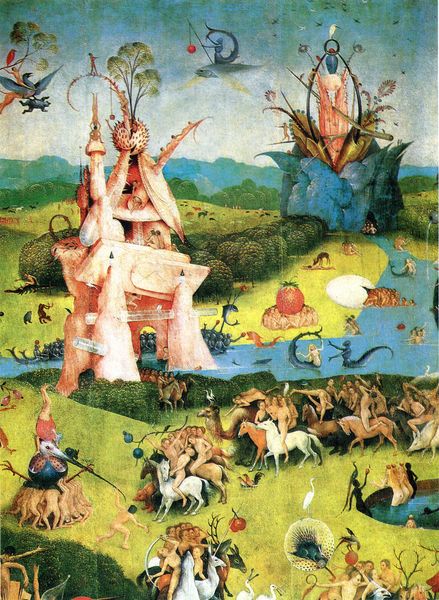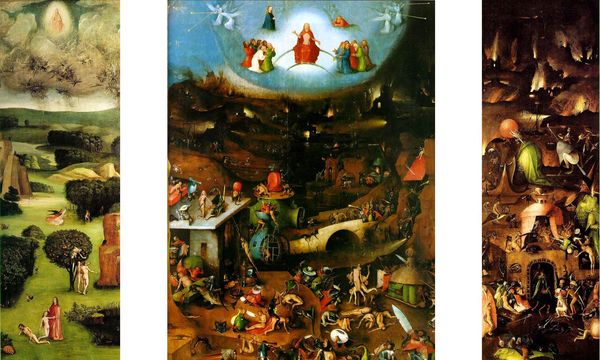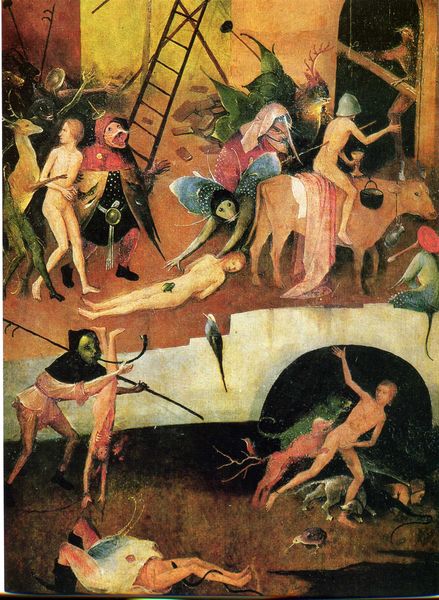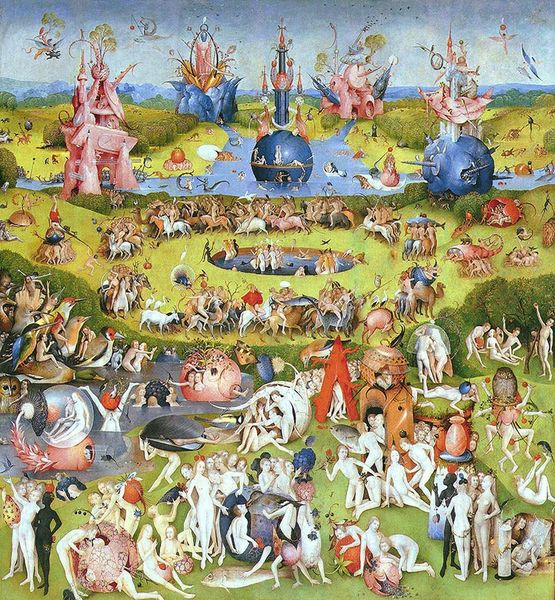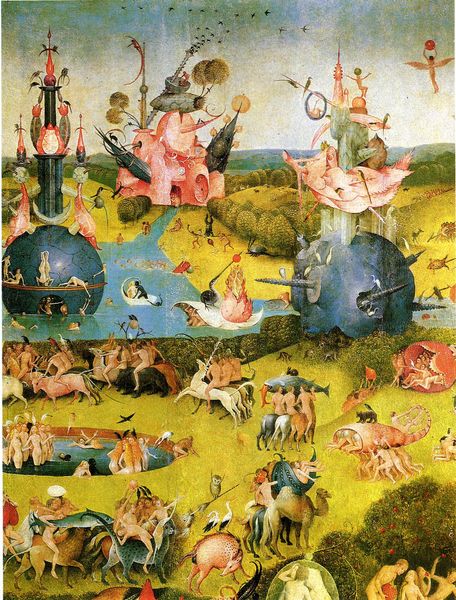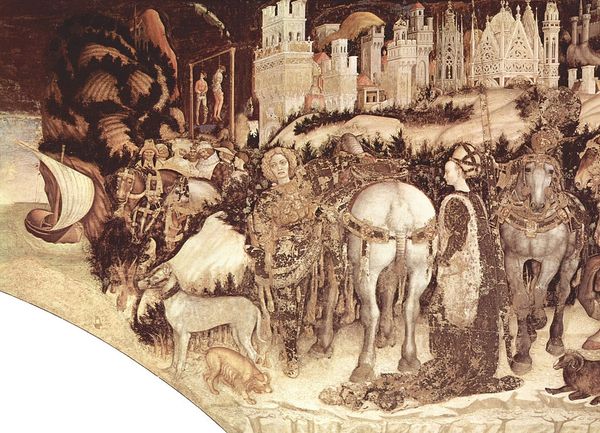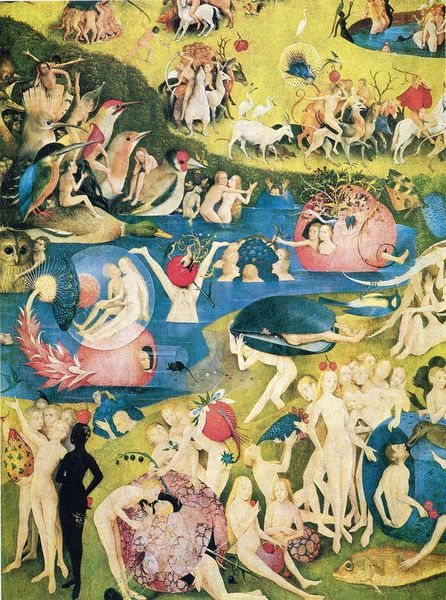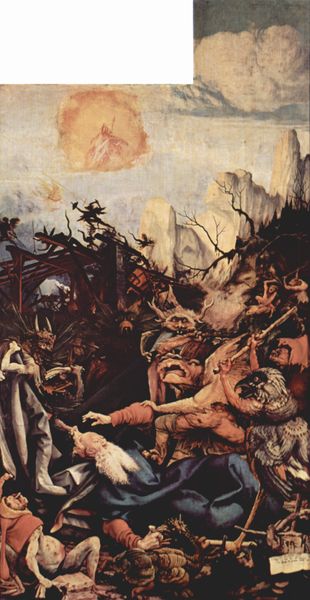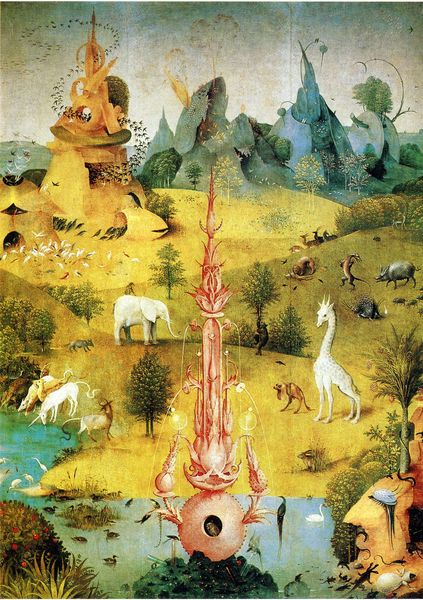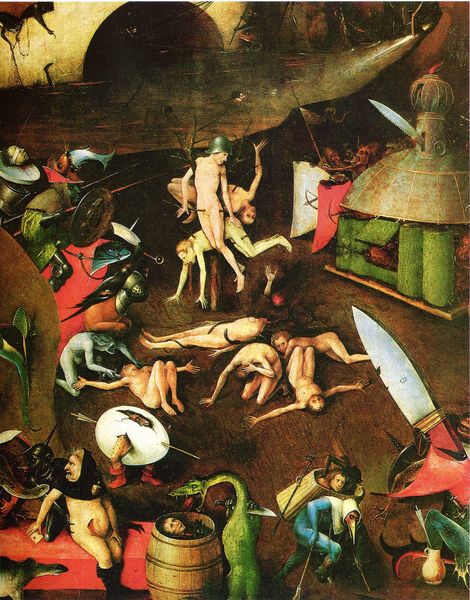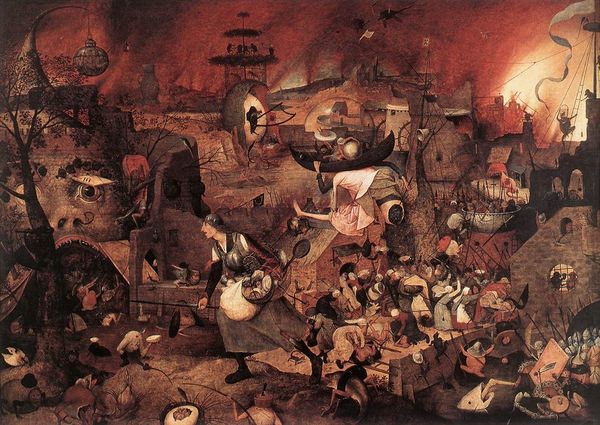
oil-paint
#
allegories
#
allegory
#
oil-paint
#
fantasy-art
#
figuration
#
oil painting
#
vanitas
#
christianity
#
history-painting
#
northern-renaissance
Copyright: Public domain
This detail is from Hieronymus Bosch's fantastical triptych, "The Garden of Earthly Delights," painted sometime between 1490 and 1510. As a Northern Renaissance artist, Bosch was deeply concerned with morality and sin, themes vividly portrayed here. This panel, believed to represent hell, is a chaotic landscape teeming with bizarre creatures and human figures engaged in grotesque acts. Bosch’s hell isn’t a place of fire and brimstone alone; it's a perversion of earthly pleasures, where musical instruments become instruments of torture, and gluttony leads to grotesque punishment. The painting can be read as a commentary on the social anxieties of the time. The rise of mercantile culture and the obsession with earthly delights, which would have troubled the religious and moral authorities of the time. It speaks to a culture grappling with shifting values, where traditional religious beliefs were challenged by the allure of worldly pleasures. As you gaze into this nightmarish vision, consider how Bosch uses the grotesque to provoke introspection.
Comments
No comments
Be the first to comment and join the conversation on the ultimate creative platform.
